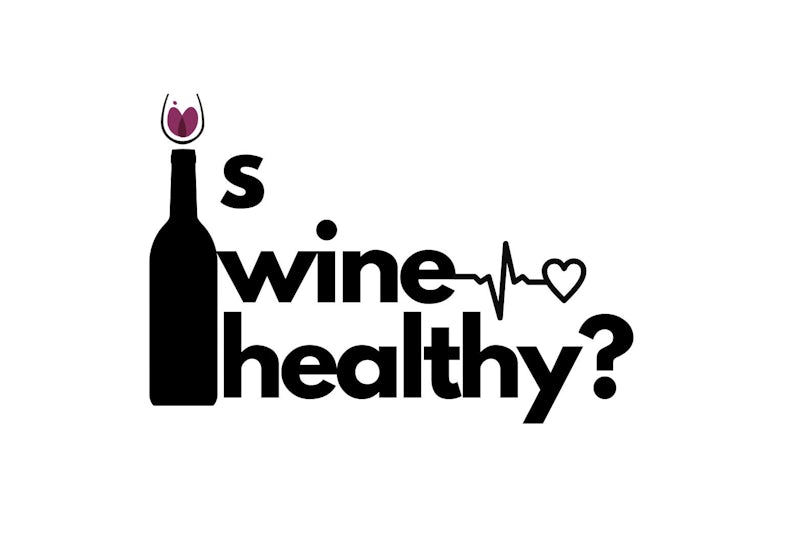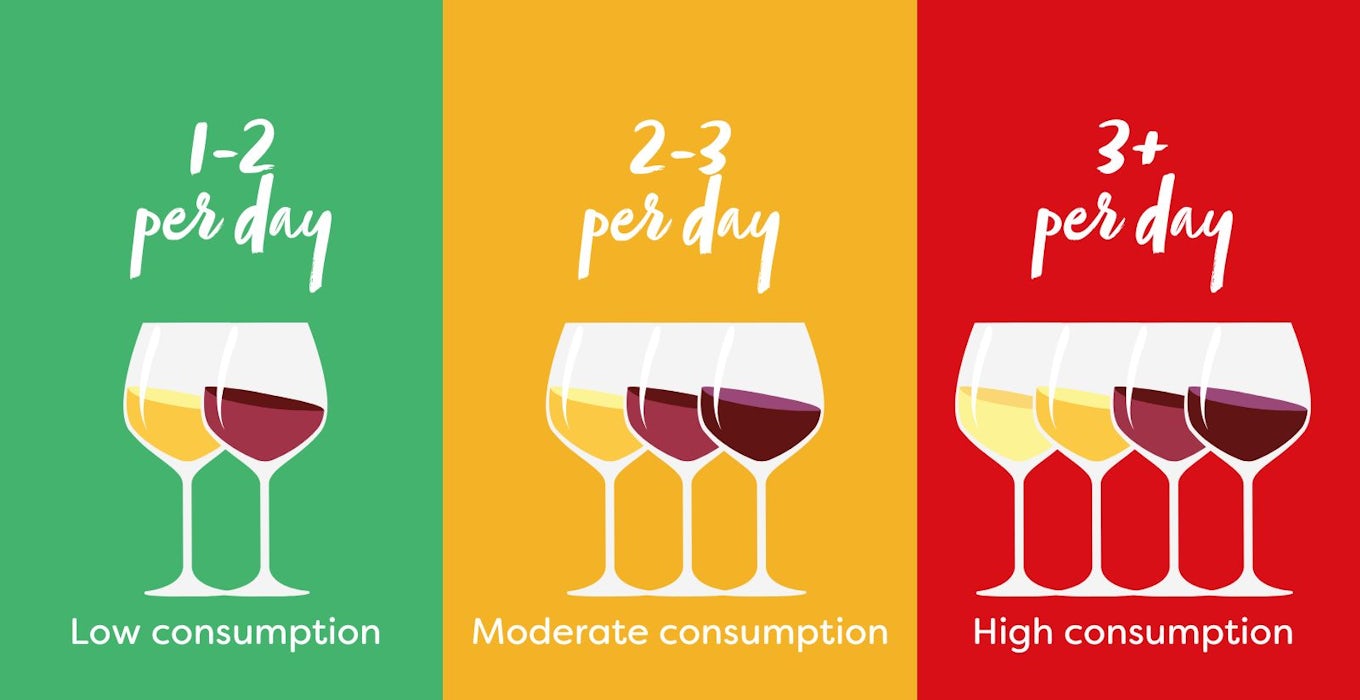09.03.2023
Is wine healthy?

As a winelover, I hope that drinking wine is somewhat good for my health and benefits me in more ways than simply pleasure, and it does to a certain extent. However, there is a fine line between risk and reward that we need to understand to maintain a healthy relationship with wine.
Please note, if you are under the age of 18, pregnant, immune compromised or have a history of alcoholism, drinking any amount of alcohol is an unnecessary risk to your health and is not advised.
Wine (especially red wine) has been studied extensively for its potential health benefits. Here are some health and lifestyle benefits to drinking wine.
Health Benefits:
-
Heart Health: Low to moderate wine consumption has been associated with a reduced risk of heart disease due to the antioxidants (polyphenols) that are found in wine and can help reduce inflammation and lower cholesterol levels. Wines with high tannins also have high antioxidant levels.
-
Brain Health: Some studies suggest that low to moderate wine consumption may help protect against cognitive decline and reduce the risk of Alzheimer's disease.
-
Diabetes: Red wine may help regulate blood sugar levels, reduce insulin resistance, and improve metabolic health.
-
Cancer Prevention: The antioxidants in wine may also help prevent certain types of cancer, such as breast and colon cancer.
-
Mental Health: Low to moderate wine consumption has been found to decrease mild anxiety and calm the nerves. A glass of wine over a meal with loved ones can be the perfect antidote to a stressful day.
-
Social Interaction: Wine has a tendency to bring people together, and that's a great thing. Sharing wine engages social conversation, encourages group activities and can even stimulate the mind intellectually.
Like all things in life, too much of a good thing can be bad for us. Low to moderate levels of consumption are considered healthy drinking levels, where as high consumption of wine increases the risks to our health significantly.

Regardless of how much one drinks in a day, it is important we know the risks associated with drinking wine.
-
Addiction: Drinking wine (or any alcoholic beverage) in excess can lead to addiction and dependence, which can have serious negative impacts on physical and mental health.
-
Liver Damage: Excessive alcohol consumption can lead to liver damage, including fatty liver, alcoholic hepatitis, and cirrhosis.
-
Increased Risk of Cancer: While moderate wine consumption may help prevent some types of cancer, excessive drinking can actually increase the risk of certain types of cancer, such as liver and esophageal cancer.
-
Weight
Gain: Wine contains calories, and excessive consumption can lead to weight gain and obesity.
-
Gut flora and gut biome degradation and destruction. Due to alcohol's antibacterial properties, it can kill good gut bacteria which has been proven to play a huge role in the overall health within our bodies.
-
Brain and brain function damage. In excess, over extended periods, alcohol inflicts short to long term negative effects on cognitive brain functioning, including decrease in intelligence and memory.
So, how do we live a healthy life that involves drinking wine? Well, it's quite simple really. Drink less, drink thoughtfully and, most importantly, drink better wine. Here are our top tips to achieve this.

-
Substitute your every day cheap quaffers with wines of merit, more value and higher quality. Less is more! (Psychologically, a wine that is deemed more valuable is far less likely to be opened and consumed at the drop of a hat, and when it is opened it becomes somewhat of an event in itself.)
-
More often than not, a more valuable bottle is shared amongst a group of people. This naturally decreases the amount one person can drink from that bottle and helps maintain a low to moderate consumption level without even trying.
-
Be aware of what and how much wine you consume. By simply knowing what is going into your body is a great step towards managing just how much you consume, or should consume.
-
Eat food whilst sipping on a glass of wine. Food slows down alcohol absorption into the bloodstream and in turn reduces the risks associated with drinking wine. Wine is also a good digestive and aids in breaking down protiens in food.
-
Replenish and rebuild your gut bacteria and biome by eating probiotic rich foods like fermented kimchi, sauerkraut, yoghurt, kefir and kombucha. Eating an array of fresh fruit and vegetables, high fibre plant based foods and good quality meat and cheese does wonders also.
-
Avoid binge drinking and spread a bottle of wine out over an extended period of time. Once you open a wine, look after it by minimising its exposure to oxygen and refrigerate it so you can drink it over days instead of one sitting. Wine preservation systems can preserve wine for weeks and even months. (We recommend a Coravin system that allows you to pour single glasses from your favourite bottle of wine without having to open a bottle at all. The wines can last several months without being compromised)
It's important for us all to drink responsibly. If you do feel you have a problem with alcohol, there are many avenues of help available in Australia. Organisations like Lifeline, ReachOut, HealthDirect and HelpGuide are there for support, guidance and intervention if you need them.

